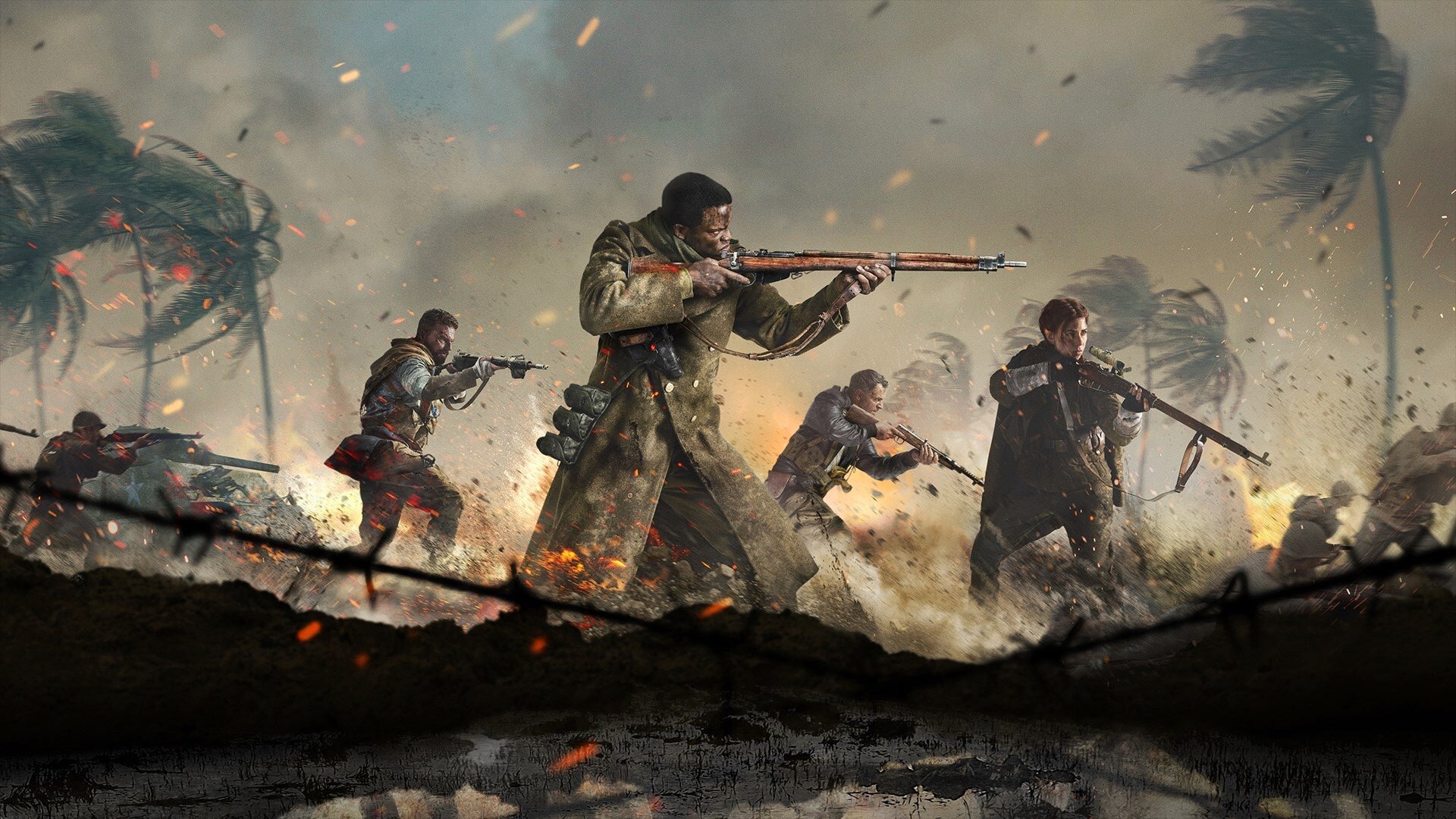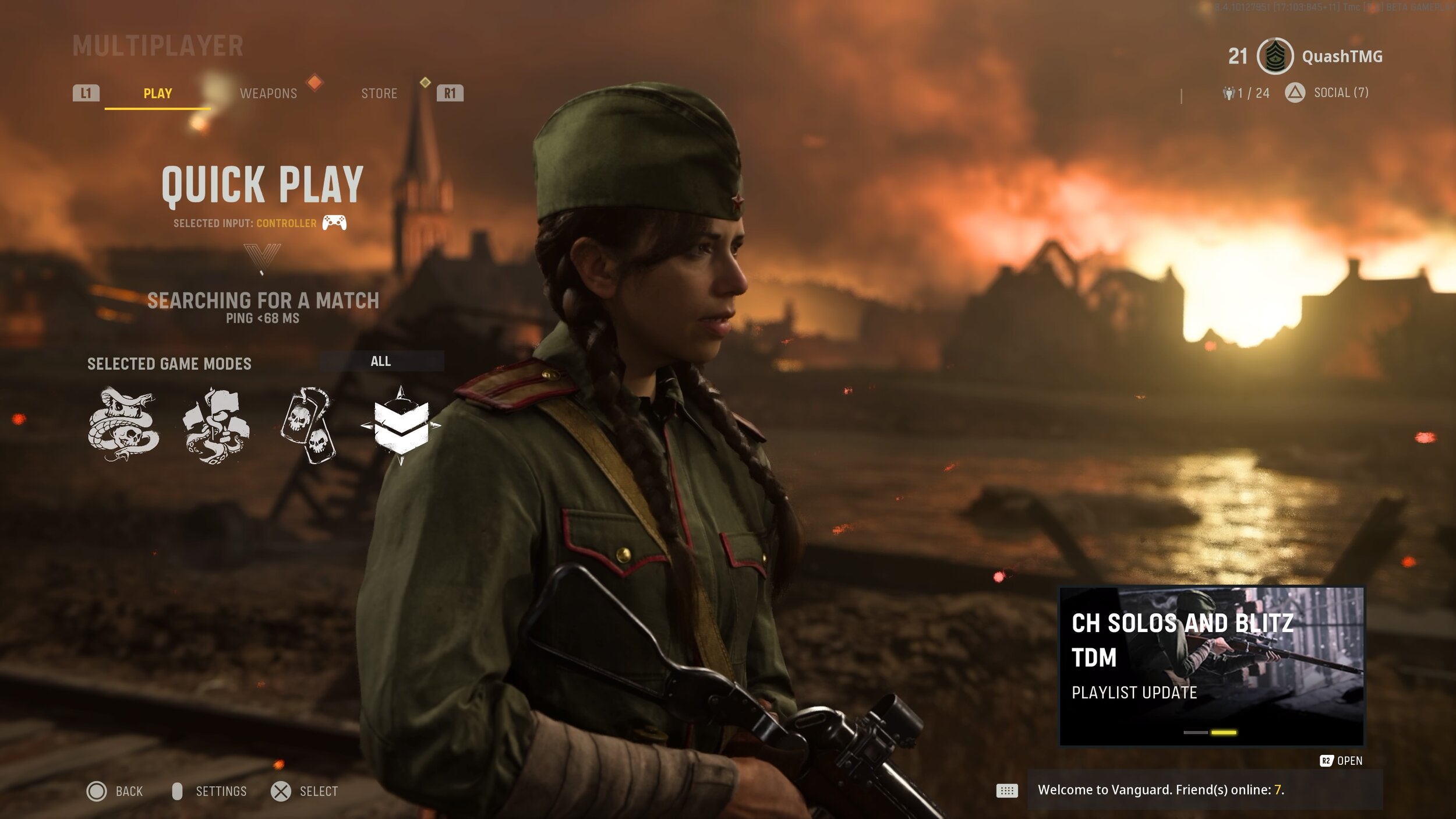Call of Duty Vanguard is Call of Duty, nothing more, nothing less
/The Call of Duty Vanguard beta went live last weekend and I gave this year’s entry a spin. It’s yet another take on World War II from developer Sledgehammer Games. Another year of playing Call of Duty the Call of Duty way. Another round of changes here and there that sadly doesn’t trigger any sense of excitement or thrill as we get closer to its November release.
If you’re familiar with 2019’s Modern Warfare reboot, you’ll soon notice right away that Vanguard’s multiplayer portion feels and plays just like it. The sprinting animation of your gun raised to your side for some weapons as you move forward, the ability to mount your weapon on cover, peeking through doors, heck, the game menu is practically designed the same way, down to soldiers walking through a never-ending path.
Even loadouts play the same as Sledgehammer implemented the same Gunsmith system of allowing players to equip a crazy amount of attachments (up to 10) to World War II guns like an M1 Garand, which is absurd as even as simple as a red dot attachment doesn’t make sense in the 1930s, but they added it anyway.
It’s an inevitable comparison between 2019’s Call of Duty and Vanguard as Sledgehammer Games adopted an upgraded version of the IW engine, which was used to build Modern Warfare, and the ever-famous Call of Duty Warzone. I was never a fan of how the new Modern Warfare felt but appreciated the improved graphical detail that it brings to Vanguard and the destructible environments found in each multiplayer map.
Every round starts with all doors, windows, pretty much every interior object intact. Once the match begins, mostly all these environments can be destroyed to a degree that opens up new pathways and lines of sight thanks to all the gun fights. This level of micro destruction is probably the most appealing addition to Call of Duty Vanguard multiplayer but innovation stop there as everything else is pretty much what you would expect from Call of Duty.
Sledgehammer’s last attempt, 2017’s Call of Duty WW2, felt bold as they tried different things to make it feel and look fresh. Sure, the class system wasn’t highly received by the community, and their large-scale objective-based game mode War didn’t really stick. But I appreciated the effort. This time around, Vanguard feels like a safer approach.
We have new game modes like Patrol and Champion Hill but as much as they persist in adding new modes for the sake of variety, the majority of the Call of Duty community simply wants to do one thing - kill as many enemies in one life to trigger killstreaks/scorestreaks. Objectives are secondary and that’s mostly the case if you play objective-based game modes like Patrol, or Search and Destroy. Even Kill Confirmed as I always see players get the kill and just leave the dog tags, ignoring the chance of the team scoring.
It’s as expected but it’s hard to get excited with any game mode introduced when you know it will quickly be shoved at the back with the rest of them and get consumed by Call of Duty’s king - Team Deathmatch.
We’ve been through this road before. Multiplayer feels like it hit a similar wall to a point that it’s the least appealing game mode at this point. I said the same thing in my review of Call of Duty Black Ops Cold War last year, and it’s surprising to know that what I thought about the multiplayer portion of last year’s offering can actually apply to what I played over the weekend.
At this point, Call of Duty multiplayer feels like a yearly subscription to get in on the latest season wrapped around whatever theme the Call of Duty developers decide to get into in that particular year. A fast-paced multiplayer shooter that continues to stay afloat with the same formula due to its strong fanbase. A franchise that retains its annual release schedule that started way back in 2005. It makes me wonder - what would Call of Duty feel like if Activision and its developers just suddenly skipped a beat?












